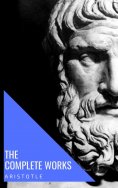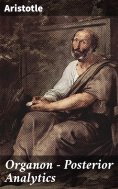Nicomachean Ethics
Über das eBook
Aristotle's 'Nicomachean Ethics' is a foundational text in the Western philosophical tradition, exploring the concept of ethics and the nature of morality. Written in a philosophical and didactic style, the book reflects Aristotle's belief in the importance of practical wisdom in leading a virtuous life. Each chapter delves into different aspects of ethics, such as virtue, friendship, and the role of pleasure in human life, offering insightful reflections on the human experience. The context of the book is rooted in ancient Greek philosophy, with influences from thinkers like Socrates and Plato evident throughout. The text not only serves as a guide for ethical behavior but also as a reflection on the complexities of human nature and the pursuit of happiness. Aristotle's profound insights continue to resonate with readers centuries after its initial publication. With a deep understanding of human behavior and a keen philosophical mind, Aristotle's 'Nicomachean Ethics' is a must-read for anyone interested in exploring the depths of ethical theory and moral philosophy.
Über den Autor
Aristotle (384–322 BCE) stands as a towering figure in ancient Greek philosophy, making contributions to logic, metaphysics, mathematics, physics, biology, botany, ethics, politics, agriculture, medicine, dance and theatre. He was a student of Plato and later tutored Alexander the Great. Aristotle's prolific body of work includes approximately 200 works, of which around 31 survive in treatises and notes that have laid the groundwork for various disciplines (Barnes, 1984). Among the most notable of his treatises is the 'Nicomachean Ethics,' a seminal work in the field of ethics that remains a central text in the philosophical canon (Crisp, 2000). The work elucidates the concept of virtue ethics, a cornerstone in the study of moral philosophy, and articulates the notion of eudaimonia—often translated as happiness or flourishing—as the aim of human life. In addition to his ethical inquiries, Aristotle was known for his 'Poetics,' where he delineates the principles of dramatic theory and literary criticism, and his 'Politics,' a compilation of his views on the nature of the state and political community (Reeve, 1998). His contributions span from practical ethics to the most abstract metaphysical theories. Aristotle's deductive system of logic, sometimes known as Aristotelian logic, had been the dominant system of logic until 19th century advances in logical theory. Hailed as the 'father of logic,' as well as biology, Aristotle crafted a legacy that endures in the intellectual traditions of the West and continues to influence various fields of contemporary philosophy.
Produkt Details
Verlag: DigiCat
Genre: Sprache - Englisch
Sprache: English
Umfang: 181 Seiten
Größe: 527,5 KB
ISBN: 8596547766483
Veröffentlichung: 27. Dezember 2023



























